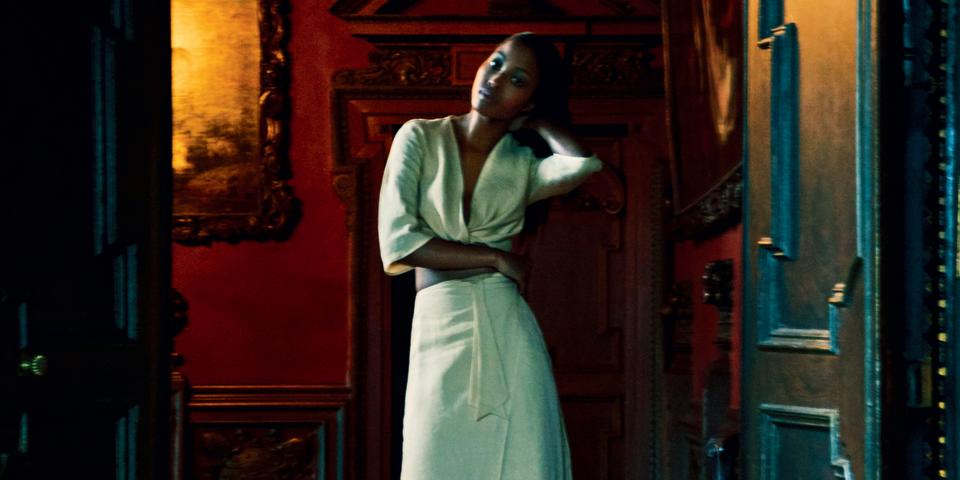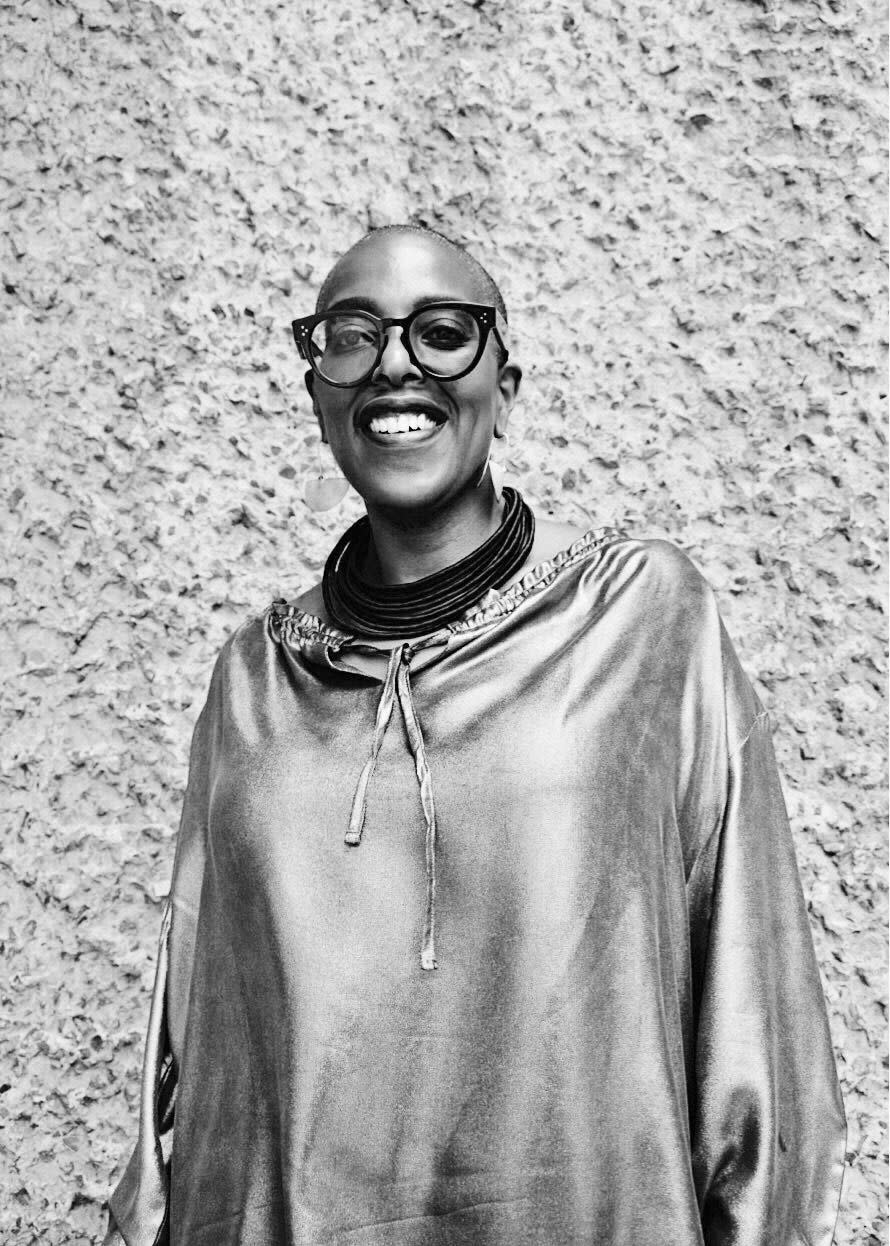Black mental health: a comprehensive guide to taking care of yourself in 2021

The brutal murders of George Floyd and Breonna Taylor last year - among many others - served as a reminder of the systemic racism that still exists globally. Their deaths provoked feelings of fury, fear, despair and an overall sense of fatigue within the Black community, uprooting a deep-seated pain that comes from a combination of factors, be it inherited racial trauma, the effects of experiencing daily covert racism or the stress of 'weathering' the effects of racial injustice. The historic trial verdict, which saw former police officer Derek Chauvin found guilty of second-degree murder, third-degree murder and second-degree manslaughter, may have come as an overwhelming relief, but also serves as a reminder that true justice is much more than a single trial ruling.
This stress and trauma is bound to have a strong impact on the mental health of those within the Black community. We spoke to Black Thrive's chair Jacqui Dyer, whose Lambeth-based organisation works in partnership with communities, statutory organisations, and the voluntary and private sectors, to reduce the inequality and injustices experienced by Black people in mental-health services. She talks about the challenges Black people currently face in relation to mental health and the importance of prioritising wellbeing at this time.
We also spoke to two experts specialising in Black mental health. Deborah Roberts – a member for the British Association for Counselling and Psychotherapy, school therapist and deputy safeguarding lead at Orchardside School – has a background in CBT to help manage day-to-day emotions you might be experiencing pertaining to recent racial tensions and the pandemic, and offers practical advice on how to best emotionally regulate yourself.
The psychodynamic counsellor and psychotherapist Tyrone Osbourne (MA) shares his insights on how psychodynamic therapy can be used as a way of understanding what lies at the roots of the emotions so many Black people are experiencing. The idea is to unlock unconscious content in the psyche to see how it relates to and influences the way we act and behave today. For many, the weight of oppression is inherited and passed down from generation to generation. It is worth considering where a feeling comes from and how deep it goes. From there begins the healing process.


"The tragic murders of George Floyd, Breonna Taylor and many others in the US is a stark reminder of the violence directed towards Black communities in the UK. Within our education, employment, criminal justice, health- and social-care systems, Black bodies are disproportionately excluded, detained, neglected and killed.
"For many of us, we have become accustomed to navigating daily micro-aggressions and other forms of discrimination. There are many like us at Black Thrive who vehemently challenge these transgressions, often at the cost of our economic, physical and mental wellbeing. However, for some, these repeated acts of violence become a core part of their reality and they do not recognise when it happens to them or those around them, but needless to say the impact is as potent.
"In our work, the levels and depths of the injustices faced by Black communities in Lambeth is apparent. In a borough where 26% of the population identify as Black African or Caribbean, 50% of patients in high-secure psychiatric wards and 67% of the patient population in low- and medium-secure wards are from Black backgrounds. The data also shows us that talking-therapy services were 20% less likely to engage Black people with symptoms of common mental illness such as anxiety, depression and post-traumatic stress when compared to their white British counterparts.
"These patterns of inequalities are not unique to Lambeth and are observed nationally. We must avoid being side-tracked with issues of biological essentialism, which breeds on racist narratives to explain, understand and treat Black experiences. There is no credible and reliable scientific evidence to support that Black people have a biological predisposition to developing mental illnesses. If we want to get to the root cause of these inequities, they must be understood within the context of structural racism.
"At Black Thrive, we know the importance of safeguarding your wellbeing. Black communities often do not readily have access to therapy and other healing spaces. These create opportunities for us to replenish our souls, to rebuild and enable us to face the injustices we must navigate until a fundamental shift occurs within society. To improve Black communities access to quality and culturally appropriate healing spaces, we have set up a fund to provide free and affordable therapy and support. We will test our model in Lambeth with the view to scale and spread good practice, so Black people across the UK can access healing without barriers.
"In the meantime, we at Black Thrive hear you, we see you and are here for you. The magnitude, scale and detrimental impacts of systemic racism have required us to think about our work in the global context. Global Black Thrive has been established to support and empower Black communities, strengthen Black leadership, to address structural racism and its power relationships, in a systematic way; thereby extending good practice from Lambeth to improve the health and wellbeing outcomes for Black African and Caribbean communities wherever they reside."

UNDERSTAND THAT YOUR ANGER IS VALID AND JUSTIFIED
"Anger can be unrecognised in people. It’s usually a secondary emotion which is triggered by traumatic events. A traumatic event has happened, so a lot of people will be triggered. It’s important to recognise your anger. A lot of the Black community are aware that racism exists, but we’ve learnt how to exist in despite of it – we might avoid certain places or be careful to avoid certain subjects with colleagues because we know their views or how they might react. The death of George Floyd has triggered justified anger and we must recognise and accept it in order to control it. If it’s not controlled, it can spiral and become unhealthy. The next step is channelling your anger in a positive way. That could be through talking to other people about it and educating non-Black friends about the Black experience."
DO NOT BE AFRAID OF SEEKING PROFESSIONAL HELP
"Depression is going to be a huge issue among the Black community as we go through lockdown and as racial tensions unravel. Speak to a professional about how you’re feeling – there are a lot of organisations that you can access through the Black, African and Asian Therapist Network. Black people often have feelings of depression and anxiety, but they ignore them. You are taught to pick yourself up and carry on, that you’ll be fine, and this is where problems arise. There is more of a stigma in reaching out and seeking professional mental-health help among the Black community than the white community. From an early age, we’re told what happens at home stays at home. That’s how we learn to deal with things, but that doesn't mean it's the right way."
TAKING TIME OUT DOES NOT TAKE AWAY FROM YOUR BLACKNESS
"If you’re feeling exhausted, understand that it comes from still having to deal with racism in 2020. If you’re exhausted, then rest. You don’t have to take in all this information, you don’t have to watch that video, you don’t have to go to the protests, you don’t have to discuss what’s happening daily. It’s fine to switch off. It doesn’t make you less Black if you’re not participating – it just means you don’t have the space to deal with it at the moment. You need to look after yourself and take a pause. This situation has been brought to light over the past few weeks, but it’s also a situation that has been going on for centuries and it’s not going away in an instant. We’re going to be working on this for a while as we learn to resolve racism. You taking time out means you’re taking care of yourself and that, when you are ready to tackle the battle, you’ll be more prepared and focused."
DON’T LET FEAR STOP YOU LIVING YOUR LIFE
"There is a fear that all Black people will be targeted now. Do not let that fear take over your being or stop you from doing things. Fear is a very strong emotion that stops us from doing so much. It’s about finding ways to work through that fear – that could be still going to places in which you’ll be the ethnic minority, still doing things or going to events where there might be a chance you'll have to interact with the police. Understand that, although we might have these fears, it doesn’t mean that those fears will become realised. Don’t let that fear stop you from living your life, take ownership of that fear."
IF VIOLENT IMAGERY FEELS OVERWHELMING, PRACTISE MINDFULNESS
"I like to practise mindfulness. Take 10–15 mins out of your day to sit in a quiet place and switch off. I like to imagine myself on a beautiful beach in the Maldives. I imagine the way the sand feels in-between my toes and how the sun feels, and it grounds me. Even if you can only do this once a week, it’s such a beautiful tool that allows you to just switch off."
CONSIDER WHAT SMALL CONTRIBUTIONS YOU CAN MAKE TO THE FIGHT
"Think about what you can do as an individual. When you look at the situation as a group or a community, there will always be someone doing more and that might make you feel as if you’re not doing enough. Instead, look at what you’re doing personally – it might be just buying something from a Black-owned business. By doing that, you are putting the power back into the community. Every little thing you do gives power. It might not be as much as someone else, but the little things help and they are important."
IT’S OK NOT TO PROTEST
"Don’t feel pressured to go to the protests if you don't feel comfortable. Carrying guilt will make you feel ill. Not everyone has space for the protests right now. Your Blackness is unique and you will handle it however you can. We are all still processing what’s happened and what is happening, and this will affect people in different ways. Some people are unable to deal with this at the moment. Some might want to protest but be scared by the risk of contracting the virus, which is still very much alive."
IT’S OK TO PROTEST
"If you’re having conversations with people who don’t think you should be protesting because of the pandemic, it’s very important to remember why we’re protesting and why we’re asking for change. Don’t let your anger take control of the situation. Continue what you're doing regardless of anyone who says this isn’t urgent now. Block those people out, they’re a minority. When speaking to them, speak with knowledge, facts and love. Anger will distort the whole situation and will make it something that it doesn’t need to be."
IT’S ALSO OK NOT TO REASSURE YOUR WHITE FRIENDS ABOUT THEIR GUILT
"If you’re exhausted by answering questions and making white people feel better about the situation, remember you don’t have to explain anything or comfort anyone. If you’re not feeling good about the situation, then you can say, ‘I don’t really want to have this discussion at the moment, can we talk about this at a later time?’ Don’t feel pressured to be drawn into a conversation that you feel uncomfortable with, or that you’ve had so many times already and feel tired by. If that’s the case, then tell the person you don’t want to talk about it and maybe suggest some reading so that they can educate themselves."
VISIT YOUR GP IF YOU’RE EXPERIENCING PHYSICAL MANIFESTATIONS
"If you’re experiencing physical symptoms of mental-heath issues, including panic attacks, fatigue or stomach pains, then I would recommend contacting a doctor so that you can be referred. There are also grounding exercises you can do that can be helpful – just putting your feet flat on the floor or taking deep breaths. If you are having episodes frequently, then contact your GP, who can refer you to counselling services."

UNDERSTAND THAT THE WAY YOU FEEL MIGHT BE ROOTED IN DEEPER TRAUMA
"In psychodynamic therapy, we make interpretations about what that person is feeling and how it might relate to their past, perhaps a past trauma – a sense of abandonment for example.
"To put it into context, when Covid was at its peak, I had a client who was fearful that all communication would break down. The client lived alone and the last thing they were holding onto in relation to maintaining any sanity was that their phone still worked – this is how the individual was reaching out to people. In the absence of that phone, the client believed that there would be total collapse. As we went further back through their timeline, we found that this individual had been abandoned by both parents, ran away from home often and often found themselves alone. Reflecting on that led to a deeper understanding of current emotions, which in turn, leads to healing.
"Carl Jung said, 'When you make your unconscious conscious, it will direct you and you will call it fate.' Psychodynamic therapy is about drawing out what we know about ourselves into the present, enabling us to understand our thinking in a clearer way. It offers deeper insight into one’s self, but – before you embark on it – you must be ready to face hard truths about yourself. Your experiences of the past shape what you will become in the future, and it’s about addressing those experiences, understanding their impact and moving forward from them."
LEAN INTO YOUR EMOTIONS
"Lean into any emotion you are feeling to help yourself to understand it. Perhaps it’s linked to a sense of shame, embarrassment, unfairness or disappointment. What is the feeling compelling you to do? It's important to go back to the original root of the emotion. Once we understand what’s at the root, then we can move forward."
CONSIDER INHERITED GENERATIONAL TRAUMA
"If we look back, we see that a lot of the anger and frustration that Black people are currently experiencing has been passed on from generation to generation in the way parents have told their children to behave when integrating with the dominant culture. Very common to psychotherapy is the uncovering of unconscious resentment towards the primary caregiver. No parent is ever perfect, that’s not possible. The psychoanalyst Donald Winnicott presented the concept of the ‘good-enough’ parent. Being 'good-enough' is to meet enough of the child’s needs, making their frustrations more manageable.
"It's important to highlight that structural racism has a knock-on effect on an ability to parent, especially when the parent comes from a disadvantaged background. If an individual is stressed and carrying the burden of everyday racism, then they will have less of a capacity to give attention to their children. Parents from these backgrounds might not be as physically or emotionally available as they could be, often because attention is directed to maintaining liveable conditions. What is often ignored is the weight of how it feels to be drowning under the burden of oppression. As a result, the child may develop a sense of resentment towards the parent for not having their needs met. However, once we’re able to see past the personal sense of resentment and frustration, the caregiver is often acknowledged as doing the best they could with very little resource.
"There is a righteous indignation and anger about what’s happening right now – a desire of trying to banish racism – that so many have dealt with for so long already."
RESOURCES
A charity that connects Black individuals and families with professional mental-health services across the UK. The organisation has created a fund that goes towards covering any services you feel you might need.
An online directory of therapists who are self-selected, experienced and qualified. They represent a range of different theoretical orientations and specialisms and are experienced in working with the distinctive African, Caribbean and South Asian experience.
Nafsiyat is an intercultural therapy centre, committed to providing effective and accessible psychotherapy and counselling services in over 20 different languages to people from diverse religious, cultural and ethnic communities in London.
You Might Also Like

